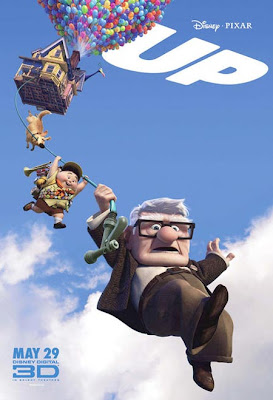
By now, hopefully, the news has already sunk in, and the rest of the Oscar bloggers out there have already put in there two cents regarding the news that just broke. For the collective masses who don't follow anything about the Oscars, here is a recap of the big news of today: at the next ceremony, the number of Best Picture nominees will be doubled. The category will play host to ten nominees instead of the usual five, the standard for every Oscar category, excluding Makeup, Visual Effects, and occasionally Original Song.
For the record, the Academy originally chose ten nominees in this category starting in 1934, and continued this practice until
Now, let's talk about the real reason the AMPAS is deciding to do this. It doesn't take too much brain to understand that this is a knee-jerk reaction to the amount of negative press the Academy received for its previous selection. Popular films that scored critically and commercially high, like The Dark Knight and, to a lesser extent, WALL-E, were shut out of the Best Picture category despite heavy campaigns and strong precursor showing. Instead, the surprise pick was The Reader, an art house film that seemed intentionally baited for Oscar recognition. The masses through their arms up and said a lot of nasty things about the Academy, accusing them of being out of touch and in poor taste. Like any institution with strong political backings, they rushed into this decision only when the previous year could have benefited more.
Now, I would like to think that having ten nominees this time will give an opportunity for more films to receive the honor that they deserve. It is true that I would have loved to have seen The Dark Knight nominated, and it probably would have if this system had been in place. But that is the past and there is nothing that can be done about that. I look at this year as being more inclined to think that Pixar will finally receive a Best Picture nomination. Up is on a whirlwind of success right now, and this is the best news for it. I still don't think it's their best, but consensus says it is so they finally have their legitimate shot at a nomination. Opening the field up does allow some other films to slip through that might have gone unnoticed before.
Still, in the end, I don't think I really support the AMPAS for doing this. For one thing, opening up the field may mean that some films get a Best Picture nomination that may not deserve it. Of course, that is all objective, but sometimes trying to find legitimate films to place that high honor onto can be a difficult one, hence why five are usually the best. Also, the more films competing for the top award, the less valuable it seems. There is something special about being honored in the top five, making the group very selective. If not a lot of films are eligible for the award, it seems like the award itself carries more prestige. Only one other awards group have 10 Best Picture nominees: the Critic's Choice Awards, and that is to match the symbolism of a critic's top ten list at the end of a year. It would be a shame if the Oscars become as useful as the Critic's Choice.
There is a reason why the Oscars are the most coveted entertainment prize. It's because it's hard to get one. Awards like the Emmys or the Grammys don't carry much baggage with them because it's so easy to receive multiple nominations and wins. If it seems like anyone can win, then the honor of winning is fairly light. The Oscars carry that prestige because of their consistency to limit the amount of awards it gives out, even sometimes striking out credited producers just cap the limit to three nominees. Ganis said that only one winner will emerge, but it still means that more people are invited to win, and the ceremony might lose something in the process. I said that had this been in place last year, The Dark Knight would have been nominated. But its nomination would have meant more if it came from a list that narrowed down five nominees instead of a list that includes the excuse, "It's only nominated for Best Picture because four other films had to be nominated with it."
I think the change is unnecessary and don't think it's going to be a radical new thing that's going to catch on because it's already too late. Besides, I don't think last year was the proper year to do it. I would have liked ten nominees in 2005, which not only included nominees Brokeback Mountain, Crash, Munich, Capote and Good Night, and Good Luck., but also had films released like A History of Violence, The Squid and the Whale, Proof, Batman Begins, Jarhead, Cinderella Man, King Kong, and many others. Once again, the Oscars react to something without thinking it through. If this blows up in their face, which it probably will, I hope they go back to five. But this news has proven one thing: no matter what the Academy does, people are going to find a reason to be upset with them.


 To Hell and Back
To Hell and Back



